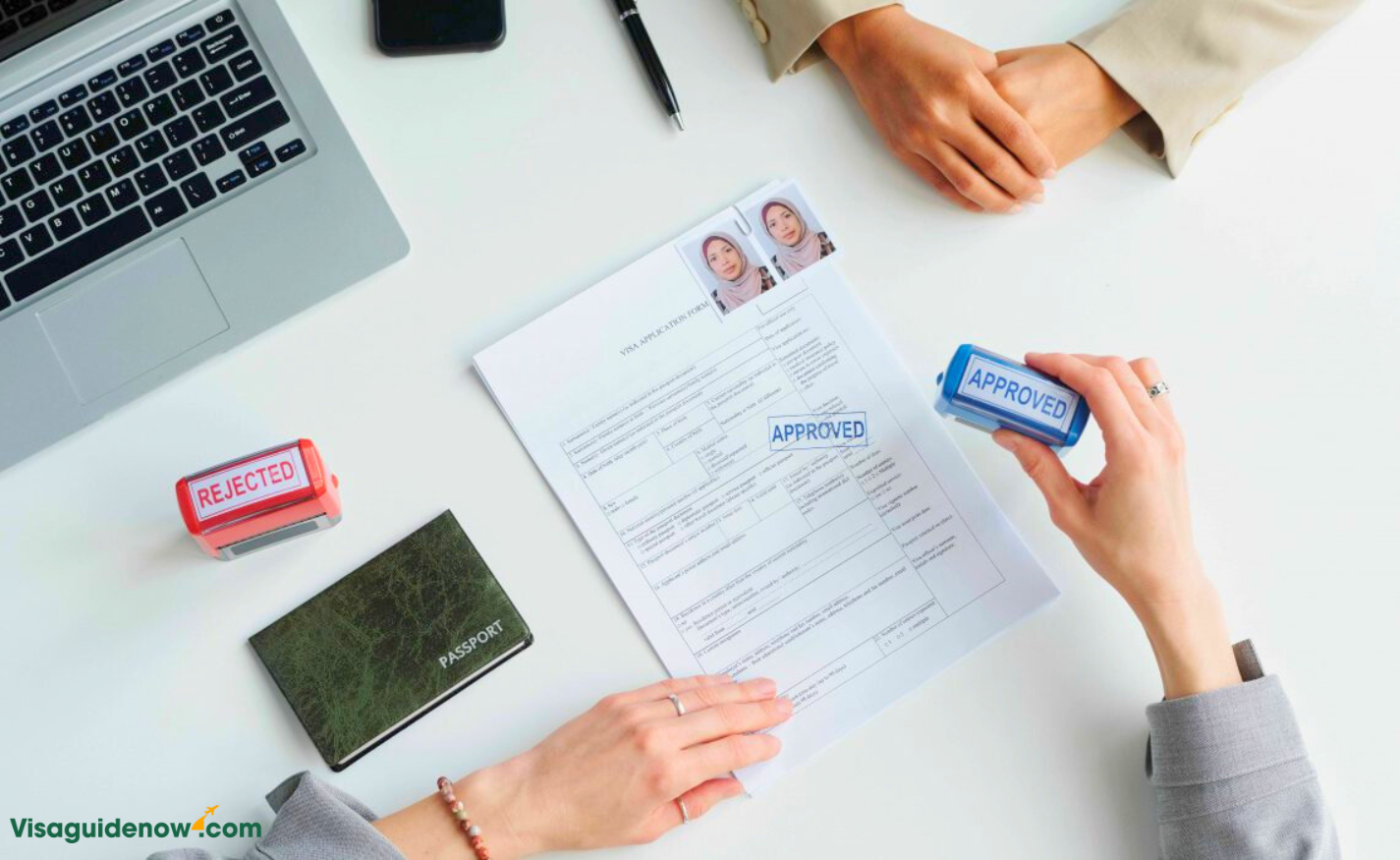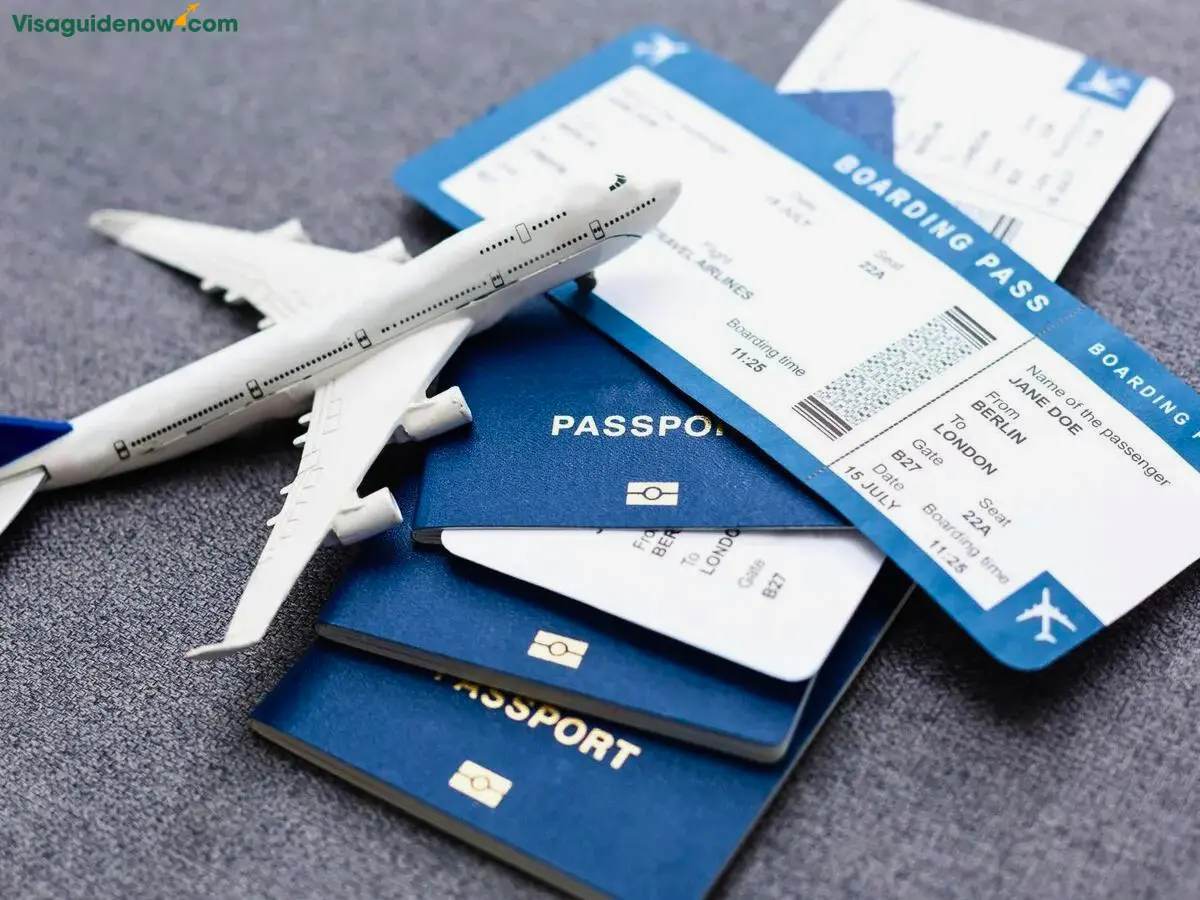Family Visa – Guidelines and Requirements
Author:Tran Van Chung | 20/02/24
A family visa opens the door for those wishing to reunite with family members in another country. With specific registration processes and detailed requirements, this type of visa becomes the key to connecting you with family members living stably far away. This article will be a valuable source of information, helping you understand reunification permit and how to register.
What is a family visa?
A family visa is a type of visa for individuals who wish to settle or reunite with family in a foreign country. To qualify, you need at least one close family member, such as a spouse, parent, sibling, or child, residing stably in that country. The purpose of this visa is to facilitate family integration, helping maintain family connections across geographical distances, thereby enhancing the quality of life and family affection.

Family visa by country
Currently, many countries around the world offer family visa for those who want to reunite with their loved ones. Countries such as the 🇦🇺 Australia, 🇦🇹 Austria, 🇨🇦 Canada, 🇩🇪 Germany, 🇯🇵 Japan, 🇬🇧 United Kingdom, 🇺🇸 United States all have family visa programs, allowing family members from different relationships such as spouses, parents, and children to live in their country. This facilitates family integration and helps maintain family relationships across international borders.
Family visa fees by country
Family visa fees can vary significantly depending on the country you are applying to. Specifically:
- The United States spouse visa fee is $325 (additional fees may apply)
- The United Kingdom charges £1,464 for a similar reunification permit (outside the United Kingdom)
- In Australia, the partner visa fee is 7,850 AUD (outside Australia)
- Canada requires a fee of 1,040 CAD for a spouse visa
- Germany charges a relatively lower fee of 75 EUR for a reunification permit
Family visa types
Currently, the reunification permit is divided into several different types, each designed to meet the specific needs of families wanting to reunite. A few common types of the reunification permit now include:
- Spouse visa: for those who want to live with their partner in another country, including registered or same-sex relationships, depending on the country.
- Parent visa: suitable if you have a child who can sponsor you from a foreign country. Not all countries issue this type of visa, so check availability beforehand.
- Child visa: you qualify for this type if you have a parent you want to connect with in another country. Typically, you need to be a child to qualify for this visa, but exceptions vary from country to country.
- Other family visa: a type of visa for direct family members is for you if you have a sibling, grandparent, or close relative who can sponsor you for a family visa. However, this type of visa is rarely issued—only specific countries have this option.
Note that the reunification permit for same-sex partners may not be available in countries where such relationships are not legally recognized.
How to get a family visa?
Applying for a reunification permit is an important step to reuniting with loved ones in another country. This process involves four main steps: filling out the form, identifying the visa center, preparing documents, and attending an interview. Each step requires careful preparation and adherence to specific instructions to ensure the process goes smoothly.
- Step#1. Fill out the form: The first step is to find and fill out the family visa application form. This form can be downloaded from the official website or obtained directly from the visa office, depending on the country you wish to apply for a reunification permit.
- Step#2. Identify the visa center: Find the nearest visa application center or representative office (Consulate or Embassy) to submit the application. You may need to make an appointment if necessary.
- Step#3. Prepare documents: Gather all the necessary documents for the visa application, including proof of relationship and other required documents.
- Step#4. Attend the interview: Finally, you need to attend the interview at the visa center or embassy, where you will present and verify the information in your visa application.

Family visa requirements
When applying for a reunification permit, there are specific requirements that you must meet for the process to proceed. Here are some of the requirements when applying for a reunification permit:
- Family visa application form: This is the first and most important step, requiring you to provide personal information and information about your family relationship.
- Passport valid for six months: Your passport needs to remain valid for at least six months from the planned entry date.
- Passport photograph: A photo in the prescribed format and size is needed.
- Proof of relationship: Marriage certificate, registered partnership certificate, or equivalent documents.
- Proof of cohabitation: Documents proving cohabitation like joint bank accounts, lease agreements.
- Joint child custody: If applicable, provide proof of joint child custody.
- Police certificate: Proof that you have no criminal record.
- Proof of accommodation: Proof that you have stable accommodation in the country you intend to go to.
- Pay the visa fee: Pay the visa fee as per the regulations of the visa center or embassy.
- Health insurance: Some countries require proof of health insurance when applying for a reunification permit.
How long does it take to get a family visa?
The processing time for a reunification permit can range from one to two years, depending on the country and the specific circumstances of the visa application. Notably, some countries like Australia allow applicants to reside in the country during the visa processing period. However, the time required to complete this process varies widely based on the type of family-based immigration permit you are applying for and how the visa system of that country operates.
How long does a family visa last?
The reunification permit typically has a duration that matches the original visa of your partner, usually extending from five to ten years. This offers a significant opportunity for integration and building a life together in the new country. After this period, if your partner qualifies for citizenship, you also have the chance to be granted citizenship based on your family relationship, opening up new benefits and rights.
Can you work on a family visa?
Yes, the reunification permit allows you not only to live but also to work and study in the country where you settle. However, it’s important to note that there may be restrictions on the number of working hours and the type of educational program you can enroll in, depending on the specific regulations of each country. This is to ensure that the visa holder can actively participate in the new society without encountering legal issues.







